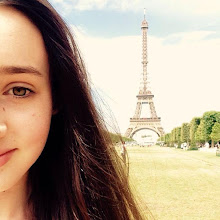As I told you in my previous post, I've spent the last two weeks on work experience in the histopathology unit of a local hospital. Prior to this, I thought I had a relatively good understanding of what being a doctor entails. I had been warned of the long working hours, the academic challenge, the tremendous responsibilities and I knew that not every patient can be saved. However, I underestimated the impact the utter human tragedy witnessed in this gruelling yet immensely rewarding career would have on me.
On my first day, despite being taken on a tour of the mortuary, I kept a stern face and was fully able to accept the concept of death as a natural and unavoidable occurrence. Inured and composed I continued with the work I had been assigned. However, yesterday I observed a change in my typical response to tragedy. The doctor I have been working with showed myself and another student cases from an account on forensic science and post-mortems, at first I was, once again,unaffected by the deaths recalled in the book. However, we soon turned over the page onto a section discussing still born babies who had been victims of deformities. As my eyes looked over photos of innocent victims of diseases such as Harlequin-type ichthyosis, cyclopia and encephalocele, the reality of medicine really hit home as I began to question the injustice inflicted upon the pure and helpless individuals. I find it difficult to put my new found feelings into words, at the time I showed no emotional response and continued to listen to the cases, but I feel that I need to write this blog post in order to acknowledge that emotion I felt. Perhaps it was a moment of vulnerability, perhaps realising that I would be unable to save some patients in the future but only provide support for their families, made be feel weak and helpless, out of control, an image I did not typically associate with medicine at the time.
By no means has this experience discouraged me from persuing my dreams of being a doctor, if anything, I now feel more inspired to reach my goal.
The experience was not all doom and gloom, whilst in the pathology laboratories, I was allowed to observe the rewarding aspect of medicine. In one particular incident, I observed the 'cut-up' of two breasts, removed from a patient who had undergone a double mastectomy the previous day. One out of eight women will be diagnosed with breast cancer in their lifetime, making it a major disease in the Western world, and a disease which has had a personal impact on members of my family, making this case particularly intriguing. Within the labs, lymph nodes and sections of the breast surrounding the tumour were removed and converted into slides which were later sent up to the consultants for analysis. Fortunately, the cancer was not metastatic and the operation had been successful in saving the life of this particular patient.
After my experience in the pathology unit, I would definitely consider this area of medicine as a future career pathway. Pathology underpins the basis of all medicine and the consultants, although often have very little patient contact, determine the prognosis and treatment of the individual. They have a great responsibility and play such a vital role in medicine, making it a challenging yet fascinating career choice.

No comments:
Post a Comment